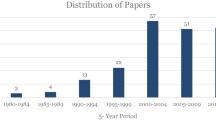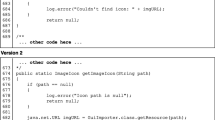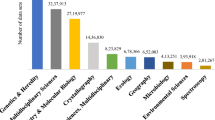Abstract
With the proliferation of open source software and community, more and more developers from different background (e.g., culture, language, location, skill) prefer to work collaboratively and release their works in social coding sites (e.g., Github). Given a collaborative project with a set of required skills, it is an important and challenging task to form a team of developers that have not only the required skills but also the minimal communication cost. Previous works mainly leverage historical collaboration records among team members to model the communication cost, while ignoring the impact of geographical location of each developer. In this paper, we aim to exploit and incorporate the geographical information to improve the performance of team formation in social coding sites. Specifically, we conduct two objective functions for the collaboration records and geographical proximity correspondingly, and propose two optimization algorithms. Comprehensive experiments on a real-world dataset (e.g., GitHub) demonstrate the performance of the proposed model with the comparison of some state-of-the-art ones.












Similar content being viewed by others
Notes
References
Anagnostopoulos, A., Becchetti, L., Castillo, C., Gionis, A., Leonardi, S.: Online team formation in social networks. In: Proceedings of the 21st International Conference on World Wide Web, pp 839–848. ACM (2012)
Ashenagar, B., Eghlidi, N., Afshar, A., Hamzeh, A.: Team formation in social networks based on local distance metric. In: International Conference on Fuzzy Systems and Knowledge Discovery (FSKD), pp. 946–952 (2015)
Balog, K., De Rijke, M.: Determining expert profiles (with an application to expert finding). IJCAI 7, 2657–2662 (2007)
Basiri, J., Taghiyareh, F., Ghorbani, A.: Collaborative team formation using brain drain optimization: A practical and effective solution. World Wide Web 20(6), 1385–1407 (2017)
Baykasoglu, A., Dereli, T., Das, S.: Project team selection using fuzzy optimization approach. Cybern. Syst.: Int. J. 38(2), 155–185 (2007)
Deb, K., Agrawal, S., Pratap, A., Meyarivan, T.: A fast elitist non-dominated sorting genetic algorithm for multi-objective optimization: NSGA-II. In: International Conference on Parallel Problem Solving from Nature, pp 849–858. Springer, Berlin (2000)
Farhadi, F., Sorkhi, M., Hashemi, S., Hamzeh, A.: An effective expert team formation in social networks based on skill grading. In: 2011 IEEE 11th International Conference on Data Mining Workshops, pp 366–372. IEEE (2011)
Fitzpatrick, E.L., Askin, R.G.: Forming effective worker teams with multi-functional skill requirements. Comput. Indust. Eng. 48(3), 593–608 (2005)
Han, Y., Wan, Y., Chen, L., Xu, G., Wu, J.: Exploiting geographical location for team formation in social coding sites. In: Pacific-Asia Conference on Knowledge Discovery and Data Mining, pp 499–510. Springer, Cham (2017)
Kargar, M., An, A.: Discovering top-k teams of experts with/without a leader in social networks. In: Proceedings of ACM International Conference on Information and Knowledge Management, CIKM 2011, pp 985–994 (2011)
Kargar, M., An, A., Zihayat, M.: Efficient bi-objective team formation in social networks. Mach. Learn. Knowl. Discov. Databases, 483–498 (2012)
Konak, A., Coit, D.W., Smith, A.E.: Multi-objective optimization using genetic algorithms: A tutorial. Reliab. Eng. Syst. Safety 91(9), 992–1007 (2006)
Lappas, T., Liu, K., Terzi, E.: Finding a team of experts in social networks. In: Proceedings of the 15th ACM SIGKDD International Conference on Knowledge Discovery and Data Mining, pp. 467–476. ACM (2009)
Leskovec, J., Huttenlocher, D., Kleinberg, J.: Predicting positive and negative links in online social networks. In: Proceedings of the 19th International Conference on World Wide Web, pp 641–650. ACM (2010)
Li, C.T., Shan, M.K., Lin, S.D.: On team formation with expertise query in collaborative social networks. Knowl. Inf. Syst. 42(2), 441–463 (2015)
Li, L., Tong, H., Cao, N., Ehrlich, K., Lin, Y.R., Buchler, N.: Replacing the irreplaceable: Fast algorithms for team member recommendation. In: Proceedings of the 24th International Conference on World Wide Web, pp 636–646. International World Wide Web Conferences Steering Committee (2015)
Li, C.T., Huang, M.Y., Yan, R.: Team formation with influence maximization for influential event organization on social networks. World Wide Web, 1–21 (2017)
Majumder, A., Datta, S., Naidu, K.: Capacitated team formation problem on social networks. In: Proceedings of the 18th ACM SIGKDD International Conference on Knowledge Discovery and Data Mining, pp 1005–1013. ACM (2012)
Ponds, R., Van Oort, F., Frenken, K.: The geographical and institutional proximity of research collaboration. Papers Reg. Sci. 86(3), 423–443 (2007)
Rangapuram, S.S., Buhler, T., Hein, M.: Towards realistic team formation in social networks based on densest subgraphs. In: Proceedings of the 22nd International Conference on World Wide Web, pp 1077–1088. ACM (2013)
Wang, X., Zhao, Z., Ng, W.: A comparative study of team formation in social networks. In: 2015 International Conference on Database Systems for Advanced Applications (DASFAA), pp. 389–404 (2015)
Wang, X., Zhao, Z., Ng, W.: USTF: A unified system of team formation. IEEE Trans. Big Data 2(1), 70–84 (2016)
Wi, H., Oh, S., Mun, J., Jung, M.: A team formation model based on knowledge and collaboration. Expert Syst. Appl. 36(5), 9121–9134 (2009)
Xiang, R., Neville, J., Rogati, M.: Modeling relationship strength in online social networks. In: Proceedings of the 19th International Conference on World Wide Web, pp 981–990. ACM (2010)
Xie, M., Yin, H., Wang, H., Xu, F., Chen, W., Wang, S.: Learning graph-based poi embedding for location-based recommendation. In: Proceedings of the 25th ACM International on Conference on Information and Knowledge Management, pp 15–24. ACM (2016)
Yang, Y., Hu, H.: Team formation with time limit in social networks. In: International Conference on Mechatronic Sciences (MEC), pp. 1590–1594 (2013)
Yin, H., Cui, B.: Spatio-Temporal Recommendation in Social Media. Springer, Singapore (2016)
Yin, H., Cui, B., Zhou, X., Wang, W., Huang, Z., Sadiq, S.: Joint modeling of user check-in behaviors for real-time point-of-interest recommendation. ACM Trans. Inf. Syst. (TOIS) 35(2), 11 (2016)
Yin, H., Hu, Z., Zhou, X., Wang, H., Zheng, K., Nguyen, Q.V.H., Sadiq, S.: Discovering interpretable geo-social communities for user behavior prediction. In: 2016 IEEE 32nd International Conference on Data Engineering (ICDE), pp 942–953. IEEE (2016)
Yin, H., Chen, H., Sun, X., Wang, H., Wang, Y., Nguyen, Q.V.H.: SPTF: A scalable probabilistic tensor factorization model for semantic-aware behavior prediction. In: 2017 IEEE International Conference on Data Mining (ICDM), pp 585–594. IEEE (2017)
Yin, H., Wang, W., Wang, H., Chen, L., Zhou, X.: Spatial-aware hierarchical collaborative deep learning for POI recommendation. IEEE Trans. Knowl. Data Eng. 29(11), 2537–2551 (2017)
Yin, H., Zhou, X., Cui, B., Wang, H., Zheng, K., Nguyen, Q.V.H.: Adapting to user interest drift for poi recommendation. IEEE Trans. Knowl. Data Eng. 28(10), 2566–2581 (2016)
Acknowledgements
The work described in this paper was supported by the National Key Research and Development Program (2017YFB0202200), the National Natural Science Foundation of China (61702568, U1711267), the Program for Guangdong Introducing Innovative and Enterpreneurial Teams (No.2017ZT07X355) and the Fundamental Research Funds for the Central Universities under Grant (17lgpy117).
Author information
Authors and Affiliations
Corresponding author
Additional information
Publisher’s note
Springer Nature remains neutral with regard to jurisdictional claims in published maps and institutional affiliations.
Rights and permissions
About this article
Cite this article
Chen, L., Ye, Y., Zheng, A. et al. Incorporating geographical location for team formation in social coding sites. World Wide Web 23, 153–174 (2020). https://doi.org/10.1007/s11280-019-00712-x
Received:
Revised:
Accepted:
Published:
Issue Date:
DOI: https://doi.org/10.1007/s11280-019-00712-x




